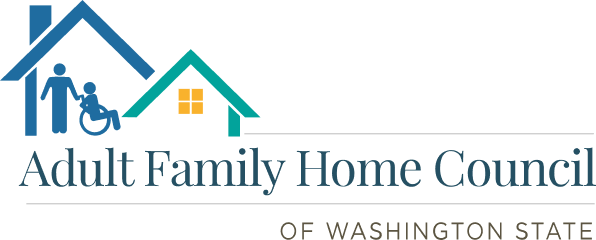The Difference Between Using Safety Committees and Monthly All-Staff Safety Meetings
Safety Committees
Safety committees are required for larger employers with 11 or more employees on a single shift and are an option for smaller employers who prefer to use a safety committee rather than hold monthly all-staff safety meetings. They provide a means for communicating and evaluating safety and health issues at adult family homes.
Safety committees have designated members who represent both employees and management and help to maintain a healthy workplace for all employees. Management selects one or more representatives to the committee and employees elect members to represent them. The number of employee-elected members must be equal to or greater than the number of management selected members.
Safety committees are intended to give everyone a voice but keeps the meeting size to an effective number of participants.
Monthly All-Staff Safety Meetings
Monthly all-staff safety meetings are an option for smaller employers, including most adult family homes, who have 10 or fewer employees on a single shift and prefer having monthly all-staff safety meetings rather than a designated safety committee.
Monthly all-staff safety meetings provide a means for communicating and evaluating safety and health issues at adult family homes and help to maintain a healthy workplace for all employees.
Safety meetings must be held at least monthly and include all employees and at least one member of management. Additional safety meetings may be held to discuss safety and health issues, as needed.
For More Information
For additional clarification on the differences between safety committees and monthly all-staff safety meetings, please see WAC 296-800-130 and L&I’s Safety Meetings and Committees.
Funding and support for this project has been provided by the State of Washington, Department of Labor & Industries, Safety & Health Investment Projects.
The Adult Family Home Council is solely responsible for the content of and views expressed in this report and related materials unless they have been formally endorsed by the Washington State Department of Labor & Industries.
These documents do not replace any standard or regulation and create no new legal obligations. They are advisory in nature, informational in content, and are intended to assist employers in providing a safe and healthful workplace.
